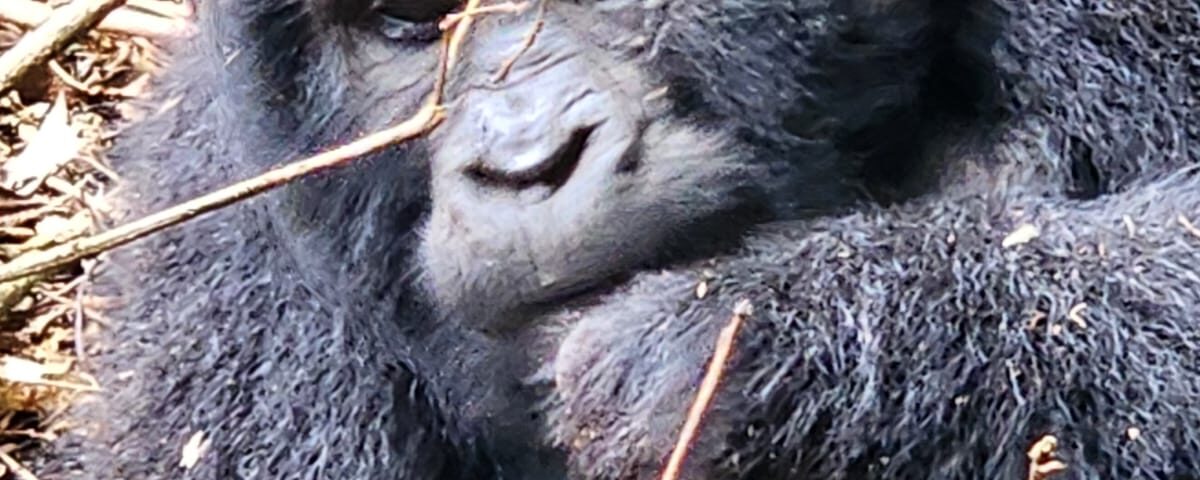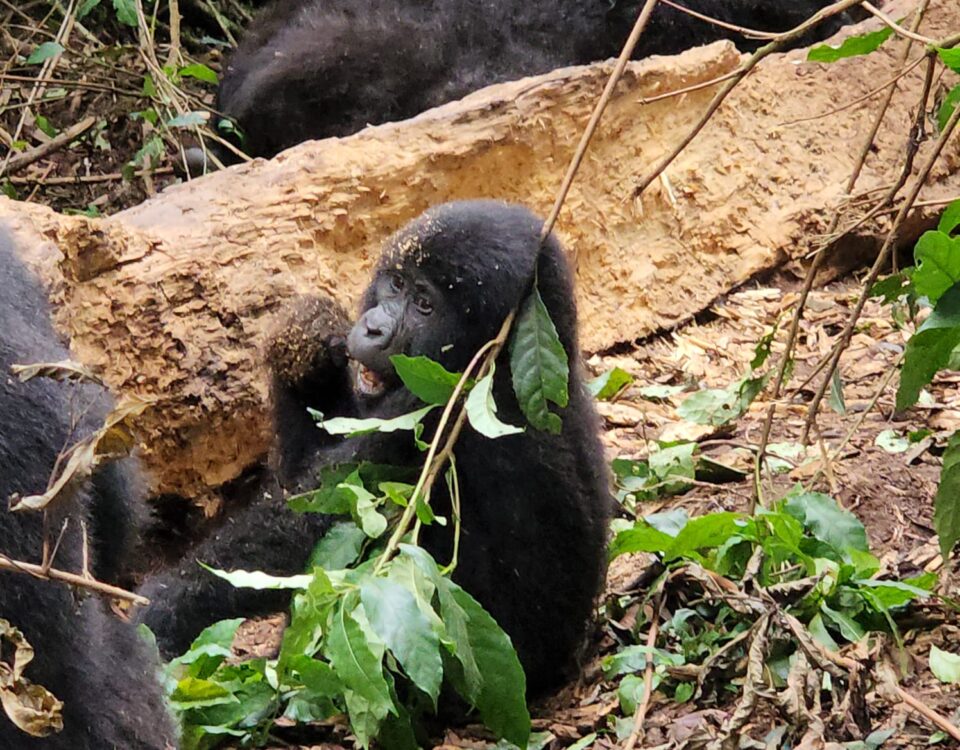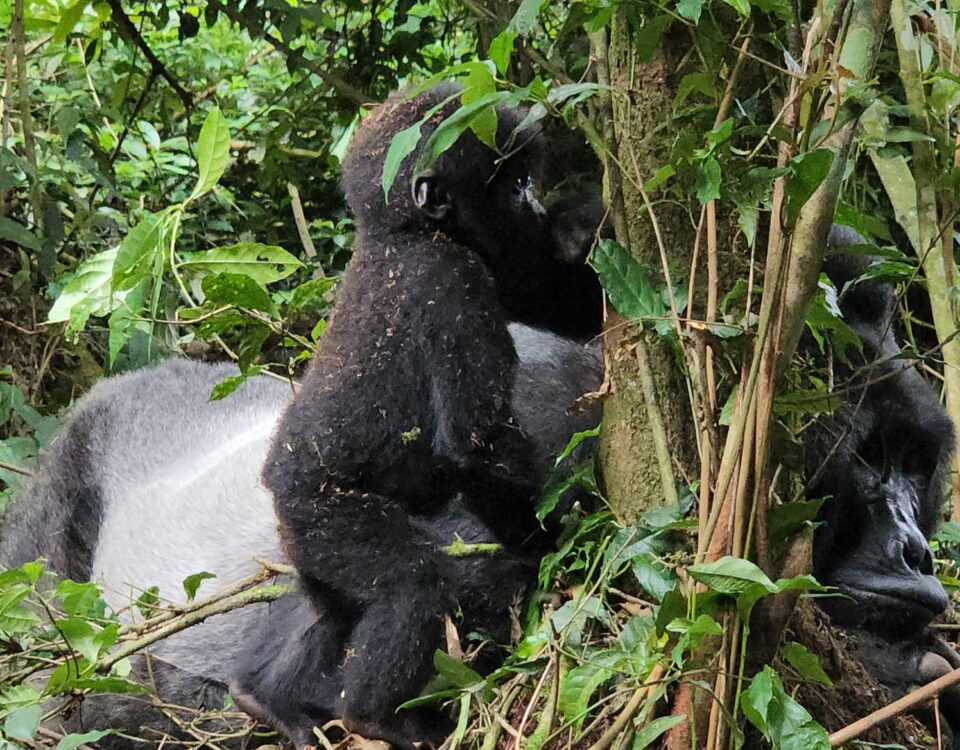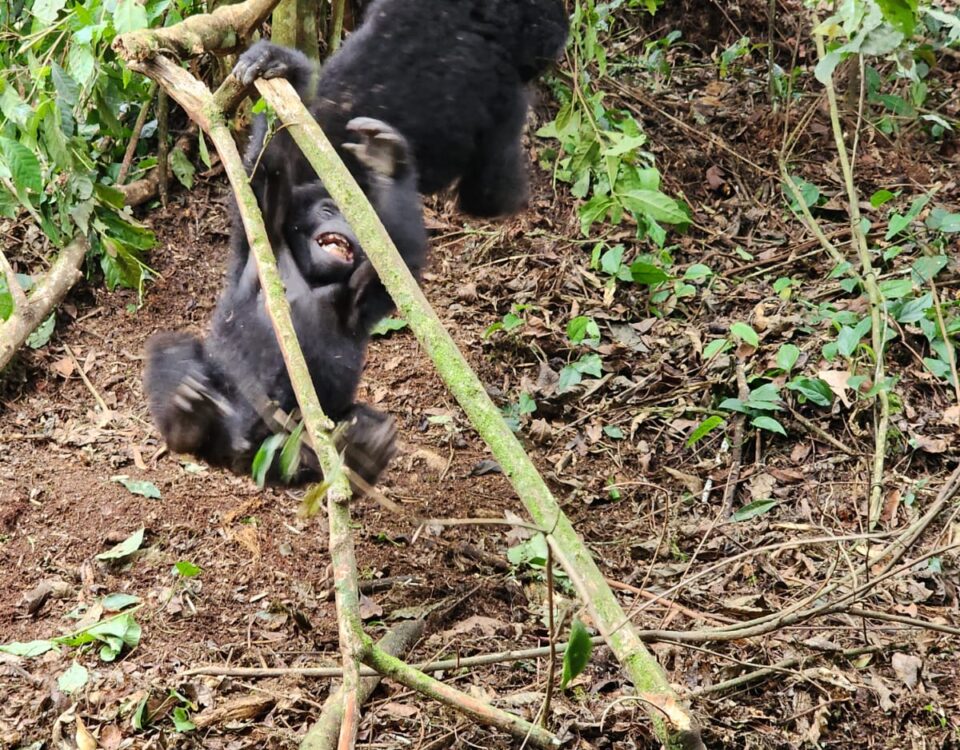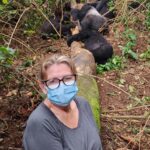
What is the History Behind Volcanoes National Park?
March 28, 2025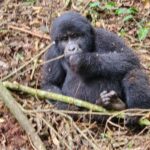
How is Volcanoes National Park Contributing to Conservation Efforts?
March 28, 2025How Many Gorilla Families Are in Volcanoes National Park?
How Many Gorilla Families Are in Volcanoes National Park? Volcanoes National Park, located in the northwestern region of Rwanda, is one of the most renowned wildlife conservation areas globally, primarily for its protection of the endangered mountain gorillas. The park is a sanctuary for these magnificent creatures, offering unique opportunities for visitors to engage in gorilla trekking experiences. As visitors plan their trips, one of the most common questions is: “How many gorilla families are in Volcanoes National Park?” To answer this, we’ll dive into the number of gorilla families, the conservation efforts, and the cultural experience one can enjoy while trekking in this iconic park.
Gorilla Families in Volcanoes National Park
Volcanoes National Park is home to several habituated gorilla families, which are available for trekking by tourists. As of recent reports, there are about 10 to 12 fully habituated gorilla families that visitors can track. These families are spread across different parts of the park, offering various trekking experiences depending on where each family resides. Each family has its own unique behavior, leaders, and characteristics, which add a distinct touch to every trekking experience.
The number of families has fluctuated over the years as conservation efforts have succeeded in increasing the gorilla population. Mountain gorillas were once on the brink of extinction, with only about 250 individuals remaining in the wild. However, through strict anti-poaching laws, habitat protection, and community involvement in conservation, their numbers have risen significantly. Currently, the mountain gorilla population is estimated at around 1,000 individuals, with a large portion of these living in Volcanoes National Park, and the surrounding Virunga Massif region, which also extends into Uganda and the Democratic Republic of Congo.
The Role of Habituation in Gorilla Trekking
One of the key factors that make gorilla trekking in Volcanoes National Park so unique is the process of habituation. Habituation is the gradual process through which wild gorillas are trained to tolerate human presence without feeling threatened. This process typically takes several years and is carried out by expert guides and researchers. The gorillas that go through this process are called “habituated,” meaning they can interact with tourists during treks.
During a trekking adventure, visitors are led to one of these habituated families. Guides share fascinating insights into the behaviors of the gorillas, the structure of the family groups, and the importance of their conservation. The experience is intimate, allowing trekkers to get within a few meters of the gorillas, watching them interact, eat, play, and even care for their young. This exceptional opportunity provides not only an unforgettable wildlife experience but also a deeper understanding of mountain gorillas and their fragile ecosystem.
The Conservation Efforts Behind Gorilla Protection
Conserving mountain gorillas in Volcanoes National Park has been a long and ongoing process, involving the collaboration of various organizations and governments. The primary agency overseeing gorilla conservation in Rwanda is the Rwanda Development Board (RDB), which works alongside partners like the International Gorilla Conservation Programme (IGCP) and Wildlife Conservation Society (WCS).
Through strict anti-poaching measures, continuous monitoring of the gorilla families, and community engagement, these organizations have made substantial progress. The benefits of gorilla conservation have not only ensured the survival of the species but have also led to economic opportunities for local communities. Tourism revenue generated from gorilla trekking has played a vital role in funding conservation projects, and many locals are now directly involved in protecting gorillas and their habitats.
Local communities, particularly those living near the park, have been educated about the importance of gorilla protection, leading to a reduction in human-wildlife conflicts. The government has also implemented initiatives to develop alternative livelihoods for these communities, such as eco-tourism ventures, which further enhance the protection efforts.
The Cultural Experience of Gorilla Trekking
While gorilla trekking is the main attraction in Volcanoes National Park, it’s also an excellent opportunity to experience Rwanda’s rich culture. Rwanda, known as the “Land of a Thousand Hills,” has a deep cultural heritage that visitors can explore in various ways during their trip.
Before or after trekking, many visitors enjoy engaging with the local Batwa community, an indigenous group who lived in the forest for centuries before it was designated as a national park. The Batwa people offer a unique cultural experience, sharing stories of their ancestors and their traditional ways of life in the forest. Visitors can witness traditional dances, music performances, and handicrafts, providing a well-rounded experience that blends nature and culture.
Additionally, Rwanda’s genuine hospitality is another highlight that enhances the trekking experience. The local people’s warmth and pride in their country’s conservation success make trekking in Volcanoes National Park not only a journey into nature but also into the heart of Rwandan culture.
Conclusion: The Future of Gorilla Families in Volcanoes National Park
In summary, Volcanoes National Park is home to around 10 to 12 habituated gorilla families, and these numbers are steadily growing due to consistent conservation efforts. The efforts of the Rwandan government, local communities, and conservation organizations have played an essential role in bringing the mountain gorilla population back from the brink of extinction. Gorilla trekking has not only become a highlight for tourists from around the world but has also become a tool for educating people about the importance of wildlife conservation.
For those seeking more than just a wildlife adventure, the cultural experiences offered by local communities make the trip even more memorable. Through immersive cultural interactions with the Batwa people and other local groups, visitors leave with a greater appreciation for Rwanda’s biodiversity and rich traditions.
Whether you are trekking to observe the majesty of the mountain gorillas or discovering the deep cultural roots of the local communities, Volcanoes National Park promises an unforgettable experience that offers both wildlife and cultural exploration. With continued efforts to protect and increase the population of these incredible animals, the future of gorilla families in Volcanoes National Park looks bright.

